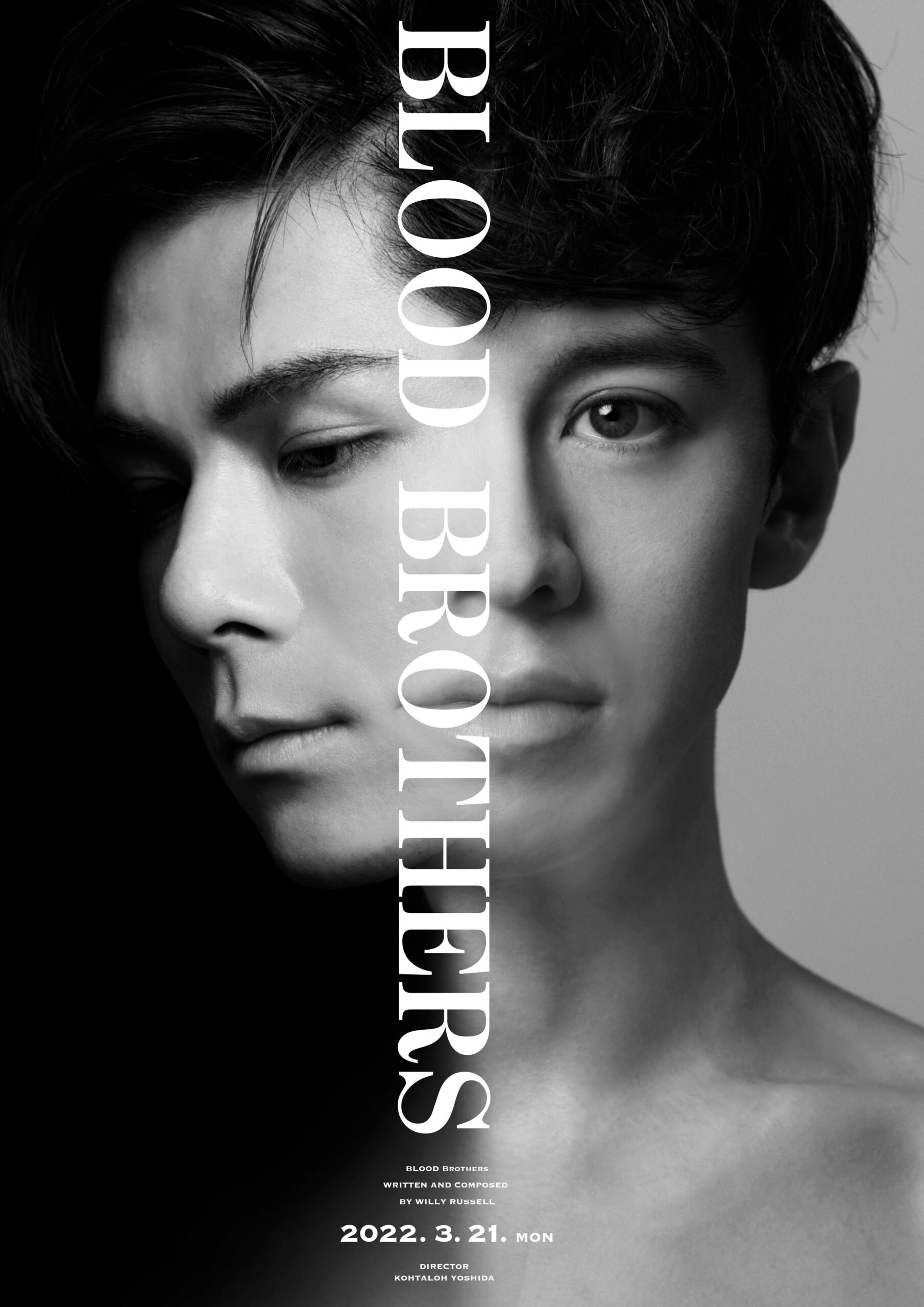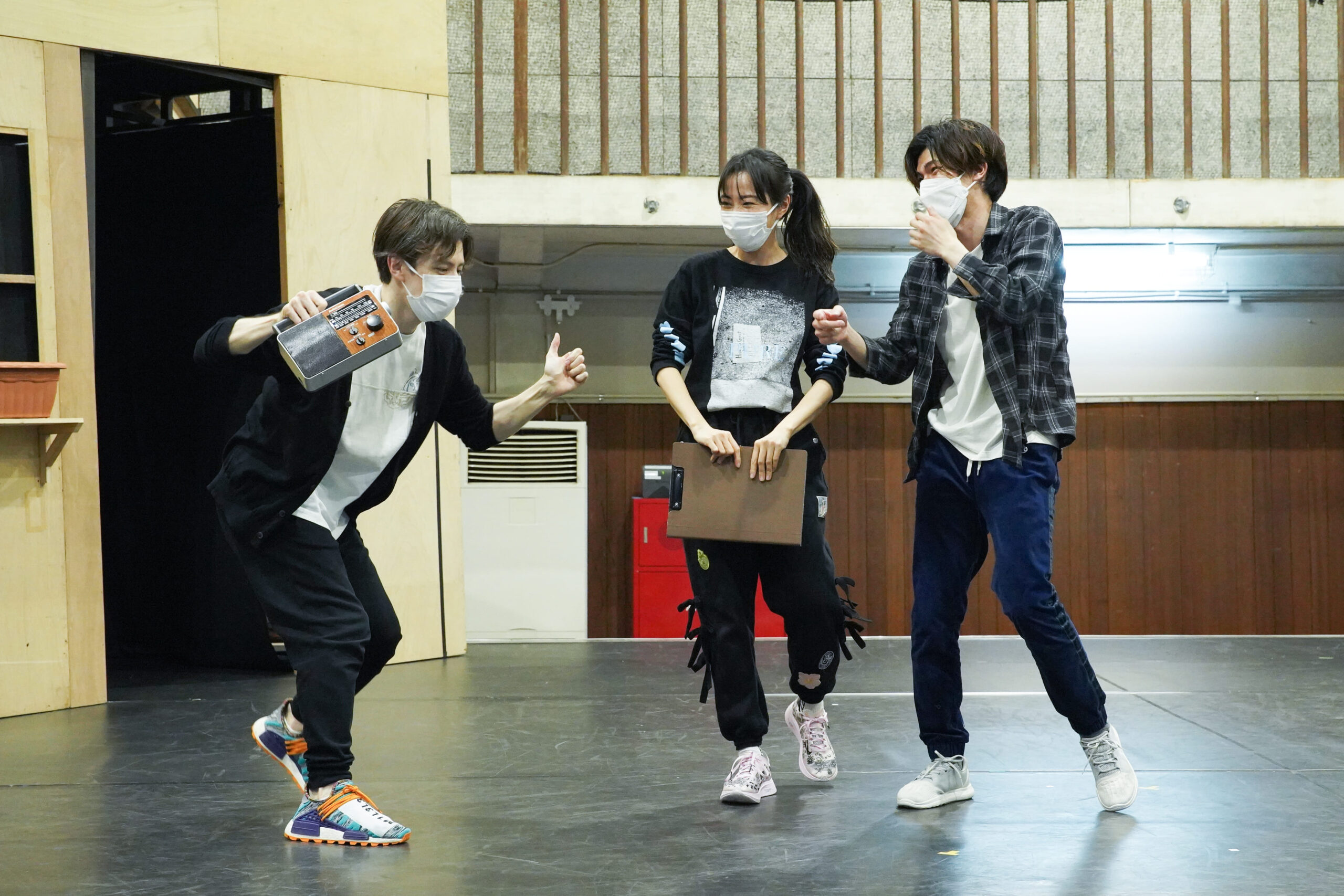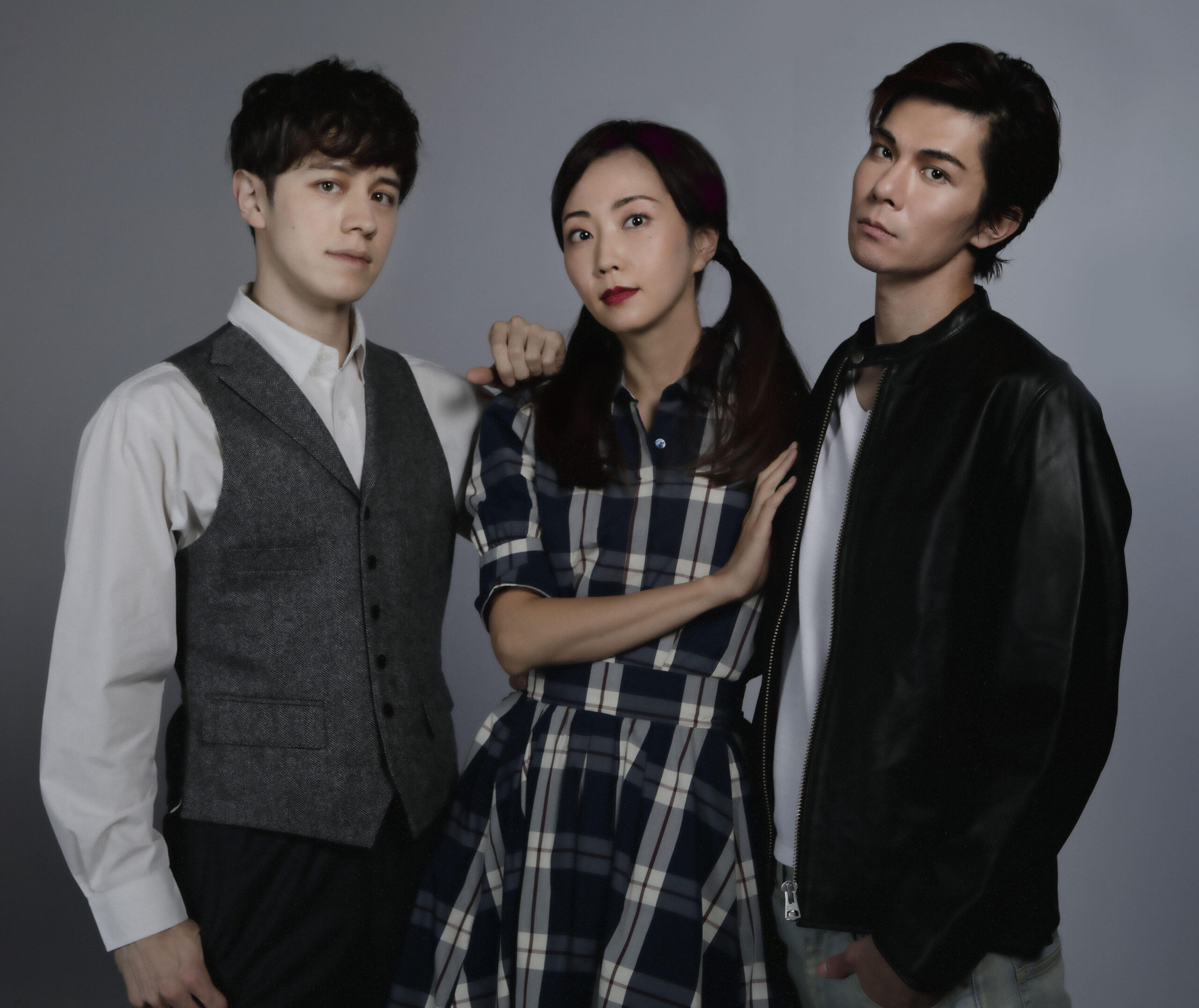
Since its Tokyo premiere with an all-Japanese cast in 1991, “Blood Brothers” has been a favorite of generations of musicals lovers, with multiple reruns featuring fresh cast members.
With pandemic restrictions eased at last, a whole new audience is set to join established fans flocking to the show’s eighth production, now at Tokyo International Forum with the top stage stars Hayato Kakizawa and Eiji Wentz in the title roles.
Written by Liverpool-born English playwright, lyricist and composer Willy Russell — also of “Educating Rita” and “Shirley Valentine” fame — “Blood Brothers” ran from 1983 to 2012 in the West End, and won an Olivier award in its opening season. Even now, it remains third longest-running musical there (after “Les Miserables” and “The Phantom of the Opera”).
Through its depiction of the titular brothers’ checkered lives — often described as “a Liverpudlian folk opera” — the show addresses the age-old question of whether nature (inherited characteristics) or nurture (upbringing) determines the course of a person’s life.
Set in hardscrabble 1960s Liverpool, the story centers on Mickey (played by Hayato Kakizawa) and his fraternal (non-identical) twin Eddie (Eiji Wentz), who were separated at birth. While Eddie is adopted by a wealthy family, Mickey is raised in poverty by his mother, Mrs. Johnstone (Keiko Horiuchi), along with brothers and sisters.
Then, when the twins are 8, they meet while they’re out playing and are soon the best of friends — without having any idea they are related. However, a few years later Eddie’s family move away and they lose contact — until Mrs. Johnstone happens to move nearby and the friendship resumes when they again meet by chance.
By this time the boys are teens, and soon they both fall in love with the same girl, Linda (Haruka Kinami), who they’d known when they first met. It’s then, faced with this poignant love triangle, that the two friends’ social backgrounds apparently lead them to react in different ways with ultimately tragic consequences.
Strangely, it’s not the first time the stars of this show have paired up on stage.
As they related lightheartedly from their rehearsal room in our recent zoom interview, they have been close friends since 2017 when they played the same role in the double casts of the Japanese version of 2014’s Tony award-winning Broadway musical, “A Gentleman’s Guide to Love and Murder.”
After that, another coincidence occurred while 36-year-old Wentz, who is well known in Japan’s entertainment world, was taking an 18-month break to study drama in London from 2018 to ’20.
Musicals star Kakizawa explained, “I was acting in Paris in 2019 in the late Yukio Ninagawa’s wonderful adaptation of Haruki Murakami’s novel ‘Kafka on the Shore.’ Wentz was living in London and I’d always respected his brave decision to leave Japan and go there.
“But then he came over to see ‘Kafka’ — and opportunely, Haruka Kinami was also in the cast, so the three of us went out shopping and eating together in Paris without knowing we would all be acting in ‘Blood Brothers’ before long.
“So I think Wentz and I already had a few remarkable encounters even before this musical opened.”
Then Kakizawa, 34, talked about acting with Wentz, saying, “I’m on stage first, and I’m alone for a while and actually waiting for him to appear because I feel at ease if he’s there and enjoy every moment being on stage with him.”
As for the storyline, he said, “This musical is quite simple with no gorgeous sets and costumes. So we can’t hide anything with visual effects and it really demands each actor’s power.
“For example,” the poor twin, Mickey, continues, “It’s quite hard to run around the stage as an 8-year-old kid. But if we give it our all, the audiences will get lots of unforgettable things from this simple story.”
Picking up on that, 36-year-old Wentz continues, “I think this musical is a bit different from other conventional ones.
“It has a rawness. It portrays people’s desperate struggle to live without hiding it, and it shows the harsh truth that destiny sometimes snatches hope from in front of our eyes and plunges us into despair.
“On the other hand, the people in this drama always look ahead and toward being with family and friends and sharing happiness wherever possible.
“To be honest, I think we’ve probably lost such close human relationships today. So I think Japanese audiences will enjoy seeing
this English society where people were really involved with each other.”
Speaking of English society, what did Wentz — who has an American father and Japanese mother and was brought up in Japan — think about today’s London?
“I realized there are hundreds of different ways of expressing yourself in the world. I was also pleased to learn that being different from others is a great thing and that people tend to enjoy those differences rather than criticize them,” he said.
“I grew up in Japan learning to value teamwork, so I think people here hesitate to be different from the majority. The fresh view I got over there opened my heart and made a big impact on me.”
Then he laughed, saying he has now been blended back into the harmonized Japanese style — though he believes his London experience will stay with him and definitely affect his future.
But reflecting on the main theme of this musical, nature or nurture, Wentz said, “I certainly decided to study in England to explore my European roots, as my father is German-American. But if I hadn’t gone there, and hadn’t seen Kakizawa and Kinami’s performance in Paris and spent time with them, I’m not sure that I would be in this rehearsal room now.
“Clearly these are my life decisions, so it’s my nurture. But nature and nurture actually got very entangled in my case.”
After a few seconds silence, Kakizawa adds, “I’ve always thought nurture makes the person’s life and they create their environment.
“Now I also reflect on how I was born into a famous family of kabuki musicians and grew up with traditional performing artists. But still I wanted to be a professional soccer player — at least until I saw the ‘The Lion King’ musical and decided to become a stage actor.”
Proof indeed, if it was needed, of what Lisa Feldman Barrett, a psychology professor at Northeastern University in Boston, wrote in a recent article in The Guardian, “There need be no ‘versus’ in the (nature/nurture) question. We simply have the kind of nature that requires nurture, and they are utterly intertwined.”
Certainly the lives of the two male leads in this musical are testament to that, and it will be fascinating to see how they present Mickey and Eddie’s entwined lives on stage.


